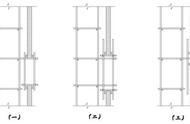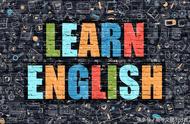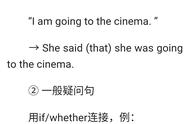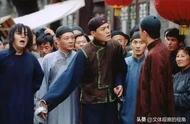英语中的最大语法—英汉两种语言的主要区别
看英文句子时,每个单词都认识,但就是不懂整个句子的意思。这是由于不了解英汉两种语言的区别以及英语中的语言风格所造成的。英汉是两种不同的语言, 它们都各有自己的语言习惯和规律。学习英语,就是要学习英语特有的表达方式。因此,为了突破英语,我们必须找出它们之间的不同之处,然后按照它们各自的语言习惯和表达方式去说和写。由于汉语是我们的母语,我们从一生下来受到它的影响,所以很多同学刚开始学习英语时都容易犯Chinlish错误,所谓Chinglish就是所说或写的句子里用的是英语单词, 但句子结构、语言习惯、语序等却用的是汉语思维。
下面我就谈谈英汉的一些主要区别:
从主体的句子结构上来看, 英语的主、谓、宾结构模式(即语序)完全与汉语相同, 即两者都是主语在前, 谓语在后, 谓语后接宾语。它们的最大区别在于修饰主、谓、宾的句子成分(即修饰语)的位置不同。英语一般都将修饰语后置。
1、汉语里的主、谓、宾之间是一种松散结构,即主、谓、宾之间常穿插其它成分?(尤其是时间、地点和定语),而英语里主、谓、宾之间是一种紧密结构, 即主、谓、宾之间不随便穿插其它成分, 即主语后紧跟谓语,谓语后紧跟宾语,因此汉译英时首先要找到主谓宾。如:
1)He came here last year in the hop of making fortune(becoming rich).
2) We often played with sand together by the sea when we were young .
2、动词连用是汉语句子里的最大特色, 即一个句子中的动词后面可以出现多个动词, 动词不需要形式变化(即时态,人称和数的变化)就可以按时间和动作先后顺序连续使用多个动词。在汉语中, 动词既可作主语, 也可作宾语, 甚至可以作句子中的任何成分。而在英语句子中, 一个句子里只有一个谓语动词,谓语动词后的其他动词则要变成非谓语动词, 即不定式或V-ing 形式。如:
1)她喜欢打排球. She likes playing volleyball.
2) 我忘记带护照了。I forgot to bring my passport.
3、汉语里的谓语动词没有时态、人称和数的变化。而英语里的谓语动词要受时间及主语的人称和数的限制即不同的时间, 就有不同的时态形式、不同的时态就有不同的谓语动词 形式。英语里的谓语动词要随着时间、主语人称和数的变化而变化。
如: 我每天洗脸。I wash my face every day.
她每天洗脸。She washes her face every day.
我昨天洗脸。I washed my face yesterday.
我现在正在洗脸。I`m washing my face now.
我明天要洗脸。I`m going to wash my face tomorrow.
4、汉语里似乎任何词都可作主语和宾语, 包括动词, 形容词和介词词组, 而英语里能作主语的词只有6种(即名词,代词,数词,不定式动词,V-ing动词和从句),动词、形容词和介词词组在英语里不能作主语和宾语。如:
1) DO is harder than say.(错)
Doing is harder than saying.(对)
2) Fat has its advantages. (错)
Being fat has its advantages. (对)
3) At home is better than go out. (错)
Being at home is better than going out. (对)
4) Do you like rich or poor? (错)
Do you like richness or poverty? (对)
5、 汉语中常省略动词, 如"我忙得很。""今天星期一。" 但英语单句中必须有谓语动词,而且只能有一个谓语动词。
I very busy. (错)→I`m very busy.
Today Monday. (错) →Today is Monday.
My sister in Class Two. (错)→My sister is in Class Two.
6、汉语的句子结构主要采用平铺直叙的"流水叙事法",谓语动词之间是一种平行关系,所以汉语里往往省去连词,形成"连动式"或用逗号来连接句子,因此汉语中没有宾语从句、主语从句、表语从句和定语从句。而英语中并列谓语之间必须用连词来表明主从关系,逗号在英语中不能连接句子,只有连词才能引导句子。
如: 你是学生,必须努力学习。
You are a student, must study hard. (错)
You are a student so you must study hard. (对)
我不想和你说话,我忙得很。
I don`t want to speak to you, I`m busy. (错)
I don`t want to speak to you because I`m busy. (对)
My father is too old, has white hair. (错)
My father is too old and has white hair. (对)
They hope us don`t like them, to be a farmer is very hard. (错)
They hope us not to be like them because to be a farmer is very hard. (对)
7、英语动词有及物(transitive verb) 和不及物(intransitive verb)之分,汉语里很少有及物和不及物之分,英语及物动词后必须要有宾语,而汉语则常省略宾语。如:
我不喜欢。I don`t like. (错)I don`t like it (them)(对)
我不相信。I don`t believe. (错) I don`t believe it. (对)
我找到了。I found. (错) I found it. (对)
谁告诉你的?Who told you? (错) Who told you that? (对)
你会后悔的。You`ll regret. (错)You`ll regret that. (对)
我忘了。I forgot . (错) I forgot it(that). (对)
谁给你的?Who gave you? (错) Who gave it to you? (对)
8、汉语里无主语句(即省略主语)很普遍,而且汉语句子常用物作主语。
如: 吃饭了没有?武汉下雨很大。
但英语中除了祈使句, 每个句子必须有主语。而且常用人作主语,因此汉译英时要尽量加上表"人"的主语,如:人称代词(I , you,we, he, she,they)
如:1)深圳从不下雪。
Shenzhen never snows. (错)
We never have snow in Shenzheng. (对)
2)如果今天没有课。
If today doesn`t have lessons. (错)
If we(you) don`t have lessons today. (对)
3)房间里有两个人。
The room has two men. (错)
Two men are in the room. (对)
4)旧州有飞机场。
Jiuzhou has an airport. (错)
We have an airport in Jiuzhou. (对)
9、汉语中没有词形和词性的变化,只是通过增加词汇来表达不同意思,而英语主要是通过词形变化来表达不同意思, 英语中的所有词类都有自身的变化。如:副词和形容词的比较级和最高级;名词的单、复数形式;动词的时态形式;人称代词的主格和宾格形式。英语非常注重词性,不同词性的词具有不同的词形和作用,不同词性的词的位置也不同。如:
1)我们成功了。
We success. (错)
We succeeded. (对)
2)成功需要艰苦的劳动。
Succeed needs hard work. (错)
Success need hard work. (对)
3)我们将提供一流的服务。
We will offer the best serve. (错)
We will offer the best service. (对)
4)你必须服务好他。
You must service him well. (错)
You must serve him well. (对)
5)他的死对他父亲是一大打击。
His die(dead) is a great blow to his father. (错)
His death is a great blow to his father. (对)
6)他三天前死了。
He dead three days ago. (错)
He died three days ago. (对)
7)I like her. (对)She likes me(对)
8)你喜欢这儿吗?
Do you like here? (错)
Do you like it here? (对)
9)我不怕热。
I`m not afraid of hot. (错)
I`m not afraid of heat. (对)
10、汉语名词前常省略物主代词(。。。的。。。),而英语名词前必须有修饰语(定语)。。。冠词或物主代词或形容词。
如: 你带书没有?
Have you brought book? (错)
Have you brought your (the )book? (对)
你做完作业没有?
Have you finished homework? (错)
Have you finished your homework? (对)
11、汉语中,一般都将修饰语放在所修饰的名词前,无论修饰语(定语)有多长。在英语中,除了单个的形容词作定语放在名词前,短语、词组、句子作定语时都定语后置, 即把定语放在所修饰词后。如:
二班来的同学. The student from Class Two.
Here is a postcard from Lily to her friend in the USA.
I came to this nice city from a poor village.
两天前她从朋友那儿借来的那条项链不见了。
The necklace she borrowed from her friend two days ago is gone.
12、 汉语中先时间后地点,而且都是由大到小;英语中则是先地点后时间,却是由大。汉语中的时间地点常夹放在句子中(主要在主谓间), 而英语中的时间地点常放在句尾回句首。 如:
1)我明天要去上海。
I`m tomorrow going Shanghai.(错)
Tomorrow I`m going to Shanghai. (对)
2)贵州省黄平县旧州中学。
Jiuzhou Middle School, Huang ping County, Guizhou.
3)2000年10月20日
20th, October, 2000
13、汉语里没有冠词和名词复数形式,因此英语里的可数名词前要么家冠词,要么用复数形式,即英语里名词不能单独使用,要么用复数,要么用单数前面 a/an.
如:
我父亲是农民。My father is farmer. (错)My father is a farner.(对)
他是学生。He is student. (错)He is a student. (对)
请关窗子。Please close window. (错) Please close the window. (对)
她喜欢读书。
She likes reading book. (错) She likes reading books. (对)
14、汉语修饰动词的状语(副词)一般放在动词前,而英语里的该类状语(副词)则放在动词后, 但always, often, seldom, hardly, never等词除外。
他正慢慢地朝大海走去。He is walking slowly towards the sea.
他勇敢地站了起来。He stood up bravely.
15、汉语没有明显的形容词和副词之分,但英语里形容词和副词的位置和作用有严格规定。英语里的副词只能修饰动词(常放动词后)、形容词或其它副词。而英语中的形容词的位置只有两种:1)放在名词前作定语;2)放在系动词后作表语。英语中的形容词一定不能单独 用,要么前面有系动词,要么后面有名词,否则只能用副词。
This book very nice. (错)
This book is very nice. (对)
He has done this successful. (错)
It`s a successful cooperation. (对)
He is a well student. (错)
He studies well. (对)
My grandfather is very kindly. (错)
My grandfather is very kind. (对)
My hobby is widely. (错)
My hobby is wide. (对)
16、英汉的主要区别还在于主语和谓语动词的使用上, 是用主动句还是被动句。汉语常用事物作主语,采用主动形式,而英语中常用人作主语,英语中用事物作主语时常用被动式。
这本书是为英语学习者写的。
This book is written for English learners.
那栋楼正在建设中。
The house is building. (错)The house is being built. (对)
17、汉语讲究"意会", 不讲究形式, 意思讲明白了就可以。如:"爱去不去。"所包含的意思就是:" 你去也行,你不去也行。我不管。"因此,汉译英时要多从句意或英语习惯去理解而不能仅从字面去翻译即多用意译,少用直译。如:
1)他文化不高。His culture is not high. (错)
He received little education. (对)
2)我不是唱歌的料。I don`t have a head for singing.
3)她对这次考试胸有成竹。She is very confident in this exam.
4)她吃醋了。She becomes jealous.
5)给他点颜色看看。Teach him a lesson.
6)不听老人言,吃亏在眼前。
If you don`t follow old people`s advice, you`ll suffer loss at once.
7)日有所思,夜有所梦。
You`ll dream of what you have been thinking of.
8)"明月几时有,把酒问青天。"
When do we have the bright moon? Let`s drink a cup of wine and ask the shy.
9)这真是雪中送炭。It`s really a timely help.
10)如果她有什么三长两短,你会吃不了兜着走的。
If she has an accident, you will be in trouble.
11)有两人在打架。
Have two people are fighting. (错) Two people are fighting. (对)
12)老地方:old place . (错) The same place .(对)
PAGE
5
,














